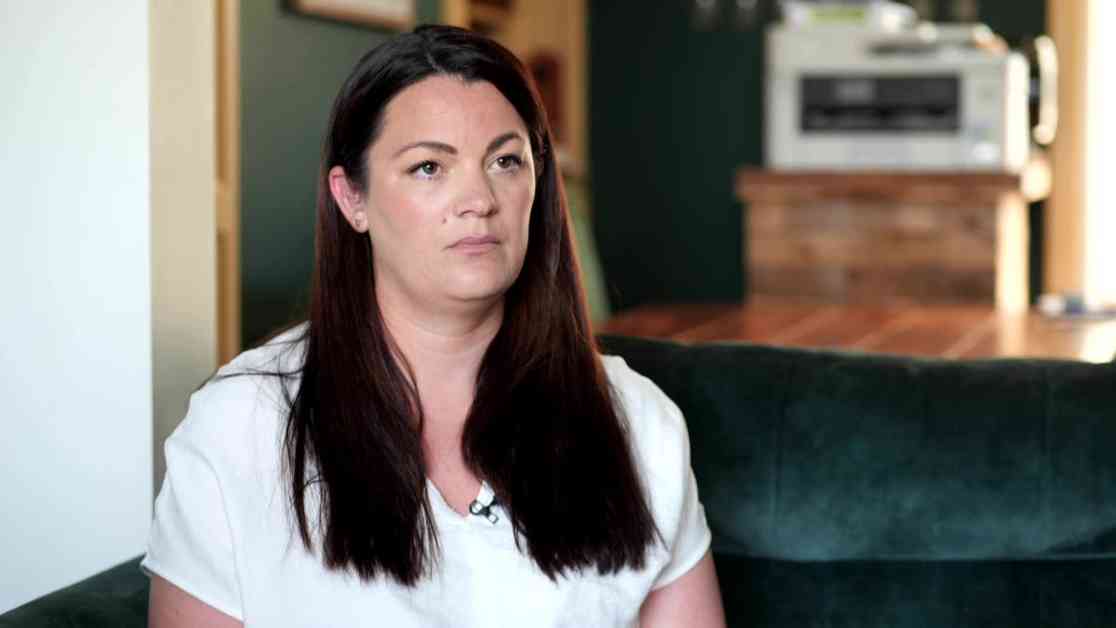Grieving families, pensioners with dementia, and even deceased individuals have been wrongly prosecuted in Britain’s secretive fast-track courts, according to a recent investigation by the Evening Standard and ITV News. The analysis conducted by a panel of barristers on a sample of cases in the Single Justice Procedure (SJP) revealed that three quarters of the prosecutions should never have been brought to court. These cases included those against sick and vulnerable defendants, sparking outrage and calls for urgent reform of the system.
A heart-wrenching example of the injustices faced in the fast-track courts is the case of a mother who was grieving the loss of her baby daughter. She was prosecuted for accidentally letting her car insurance lapse for a single day. This mother, alongside a top judge, is now advocating for changes in the SJP system to prevent such tragedies from occurring in the future.
The investigation also uncovered criminal cases brought against women who were fleeing domestic violence and unable to pay their TV Licence, as well as cancer patients and sick pensioners who were taken to court for unpaid bills. Shockingly, there were instances where individuals were convicted in the fast-track courts even after they had passed away. Former Lord Chief Justice Lord Thomas of Cwmgiedd, who oversaw the creation of the Single Justice Procedure in 2015, emphasized the urgent need for reform, stating that a serious and fundamental review of the process is long overdue.
Lord Thomas outlined potential solutions for improving the SJP system, including opening up the courts to public scrutiny, ensuring prosecutors read mitigation letters, and providing defendants with comprehensive information about their rights. Despite calls for change, the government has only stated that it is “reviewing” the SJP, prompting intense pressure to address the systemic issues that have plagued the fast-track courts.
One of the key concerns raised by Lord Thomas and others is the lack of humanity and fairness in the SJP system. Vulnerable defendants, such as pensioners with dementia, care home residents, and individuals with severe mental health struggles, have been subjected to unnecessary prosecutions that serve no public interest. Magistrates have criticized the rushed decision-making process and emphasized the importance of prosecutors considering mitigation letters before proceeding with a case.
The Magistrates Association has put forward a 12-point plan for reform, highlighting the need for transparency, humanity, and fairness in the justice system. Despite years of revelations about injustices and unlawful prosecutions, there has been a muted response from the government to calls for change. The continued operation of the Single Justice Procedure in its current form raises serious doubts about its effectiveness in delivering justice to those who need it most.
In light of these findings, it is evident that a comprehensive review of the SJP system is essential to prevent further miscarriages of justice. The fast-track courts, which handle up to 40,000 criminal cases each month, must undergo significant reforms to ensure that vulnerable defendants are not unfairly prosecuted and that the principles of justice and fairness are upheld.
Challenges Faced by Vulnerable Defendants
The investigation revealed numerous instances where vulnerable defendants, including those with dementia, mental health issues, and other serious health conditions, were prosecuted under the SJP system. These individuals often struggled to navigate the complex legal process and were not provided with adequate support or understanding of their rights.
In one case, a 90-year-old pensioner was prosecuted for unpaid car tax despite explaining his wife’s severe dementia as a reason for overlooking the payment reminder. Similarly, an 85-year-old woman in a care home was prosecuted by the DVLA, disregarding her deteriorating health and personal circumstances. These examples highlight the urgent need for a more compassionate and understanding approach towards vulnerable defendants within the justice system.
Proposed Reforms and Solutions
Lord Thomas and the Magistrates Association have put forth several recommendations for reforming the Single Justice Procedure to address the systemic issues identified in the investigation. These proposed solutions aim to enhance transparency, ensure prosecutors consider mitigation letters, and provide defendants with the necessary information to understand their rights and options.
Opening up the SJP courts to public scrutiny, requiring prosecutors to read mitigation letters, and improving the information provided to defendants are key steps towards creating a more fair and just system. By prioritizing the needs and circumstances of vulnerable defendants, the justice system can restore trust and confidence in its ability to deliver justice for all.
Government Response and Calls for Action
Despite mounting pressure from various stakeholders, including Lord Thomas, the Magistrates Association, and affected individuals, the government’s response to the investigation has been limited. While it has acknowledged the need to support vulnerable defendants and improve oversight and regulation, concrete steps towards reforming the SJP system have yet to be taken.
The Ministry of Justice, DVLA, and TV Licensing have emphasized their efforts to avoid prosecutions and consider mitigation factors before proceeding with cases. However, the lack of significant changes or updates to the system raises concerns about the continued operation of the fast-track courts and the impact on vulnerable individuals.
In conclusion, the findings of the investigation into the Single Justice Procedure underscore the urgent need for comprehensive reforms to address the injustices faced by vulnerable defendants. By implementing the proposed solutions and prioritizing fairness and humanity in the justice system, the government can ensure that all individuals receive the justice and support they deserve.












